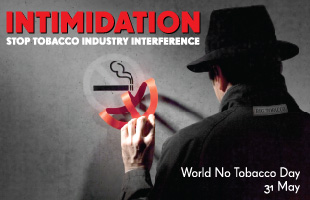May 30, 2012
We just published “Tobacco Control Legislation in Costa Rica (1971-2012): After 40 Years of Tobacco Industry Dominance, Tobacco Control Advocacy Succeeds.” The full report is available at free at http://escholarship.org/uc/item/8029s7xw
EXECUTIVE SUMMARY
Between 1971 and 1985, Philip Morris International (PMI), through its subsidiary Tabacalera Costarricense (TC), and British American Tobacco (BAT), through its subsidiary Republic Tobacco Company (RTC), successfully blocked several laws to restrict tobacco advertising and supported weak industry‐inspired executive decrees, resulting in minimal advances for tobacco advertising restrictions.
During the mid‐to‐late 1980s and early 1990s, the Ministry of Health capitalized on the public’s increased awareness of secondhand smoke (SHS) and issued nine advanced (for their time) smoking restriction decrees between 1986 and 1989, as well as assisted other Costa Rican health institutions to introduce Costa Rica’s first bill to prohibit smoking in workplaces and public places and eliminate tobacco advertising in 1992.
May 30, 2012
I asked the CDC what they thought of the story in the Sacramento Bee on the fact that California is not spending much on tobacco control.
Here is the email I got back. (Miller is the No on 29 person that the Bee quoted.)
From:McAfee, Timothy (CDC/ONDIEH/NCCDPHP) [mailto:[email protected]]
Sent: Wednesday, May 30, 2012 2:27 PM
To: Glantz, Stanton A
Subject: RE: How Sac Bee read your MMWR paper last week
Thanks for sending this Stan.
Miller seems to be arguing that since there was not enough done in the past because the revenue wasn’t sufficiently dedicated to tobacco control, that therefore nothing should be done now because the legislature will use the $$ for non-tobacco control purposes. But then at the end, sounds like she is making the opposite argument, saying that it is an issue that the $$ isn’t under legislative control.
The article also doesn’t point out two things that are factual:
May 30, 2012
We have shown that 30 minutes of exposure to secondhand smoke at levels about like experienced in a bar damage and compromise the functioning of arteries in a way that increases the likelihood of a heart attack.
Recently Paul Frey and others here at UCSF published a paper examining what happened to the ability of arteries to function at lowere levels of secondhand smoke. We exposed healthy people to a range of relatively low concentrations of aged secondhand smoke (SHS), similar to those encountered commonly in the community and found that short-term exposure to real-world levels of aged SHS for 30 min resulted in a concentration-dependent decrease in endothelial function as measured by how well arteries dilated in response to demands for increased blood flow (flow-mediated dilation).
There was no evidence of a threshold for this effect, i.e., it was detected even as the exposures of SHS went down.
This study adds to the evidence that even a little secondhand smoke is dangerous.
May 29, 2012

The No on 29 campaign is a great example of the kind of "tobacco industry interference" that the WHO is highlighting in its materials for World No Tobacco Day.
The WHO's list of "Information sheet on tobacco industry interference" could have been written about the No on 29 campaign:
1. Manoeuvering to hijack the political and legislative process
The tobacco industry has been highly resourceful in undermining governments’ efforts to protect public health. Tobacco companies have become expert in creating and exploiting legislative loopholes and manoeuvering with lobbyists to effectively influence law-making.
2. Exaggerating the economic importance of the industry
May 29, 2012
Philip Morris and Reynolds American's "third party" spokespeople are talking out of both sides of their mouths on whether or not Prop 29 is "inflexible."
On one hand, in the No on 29 ballot argument they criticize Prop 29 as "Establish[ing] another flawed auto-pilot spending mandate" that "createsan unaccountable, government bureaucracy" filled with political appointees" because the Legislature has no control over the use of the funds for the first 15 years.
But then, in response to the CDC's report that most states are not appropriating the CDC's recommended levels of support for tobacco control, the No campaign told the Sacramento Bee, "said the CDC study just proves government can't be trusted with more tobacco tax money."
